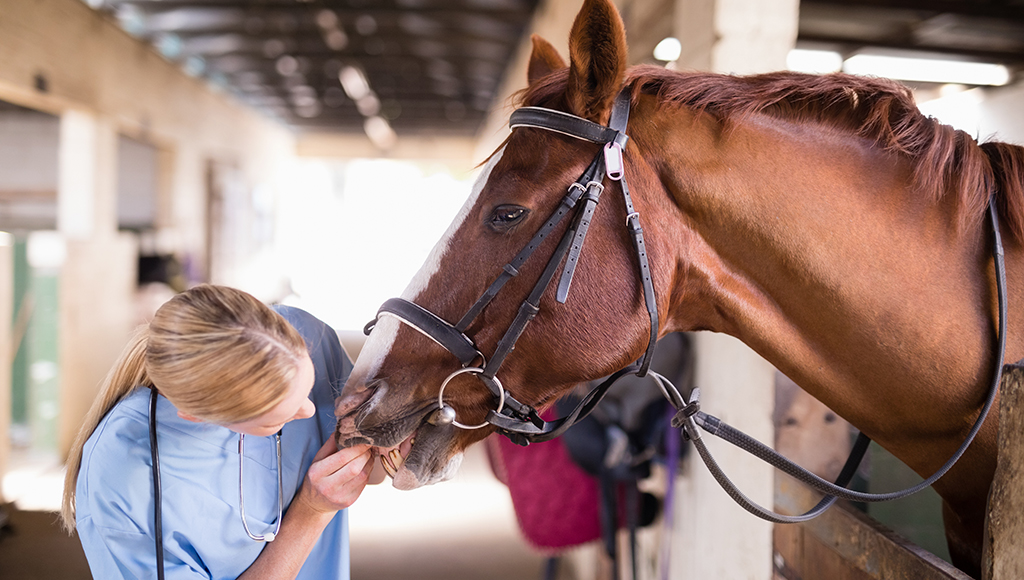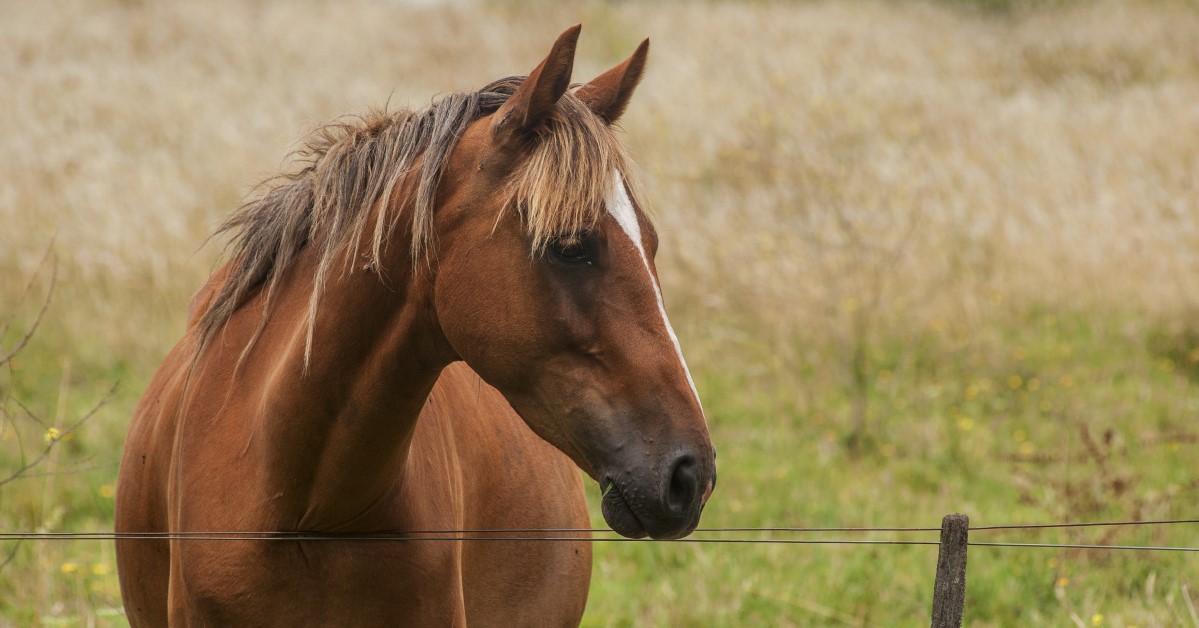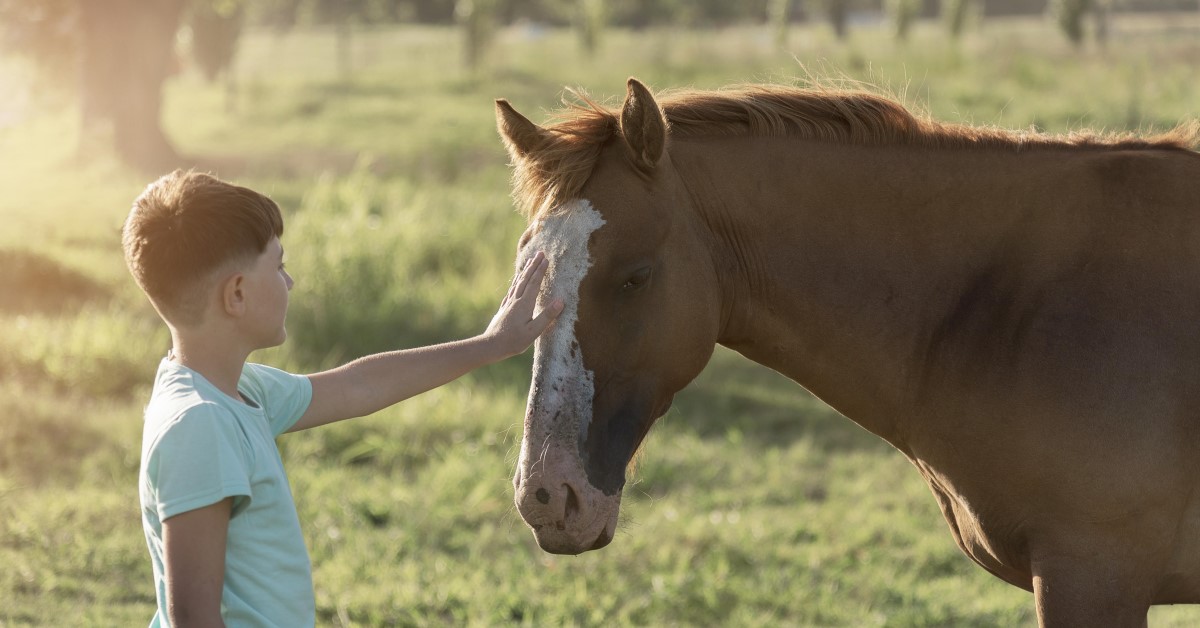Do Horses Need to be Dewormed?
The best policy for keeping your horse healthy is a good prevention program.

As a quick note, technically the terms we should use are de-worming and de-wormers, but since most horsemen remove the "de" when discussing this topic we will do the same.
Worming your horse is a multi-tiered effort that cannot be taken care of simply by administering a worming product as you would do for a cat or a dog. Instead, you will need to begin by carefully controlling the quantity of eggs and larvae your horse will pick up via its grazing. In other words, you will need to carefully monitor and manage your animal’s environment. Managing its environment will require you to observe very specific time periods that you may let lapse between administering wormers. By adhering to a specific interval, you will be able to decrease the number of eggs that the animal is releasing into its pasture, thus controlling the quantity of contaminants it will pick up again. The period of time between a worming treatment and the passing of eggs is referred to as the egg reappearance period (also known as ERP). If you let the time period between wormings exceed the ERP, you will likely experience a larger number of eggs and larvae on your pasture.
How Do Horses Get Worms?
First off, horses can get worms. These parasites can live as eggs or larvae in the grazing pasture, in feed, in a mare's milk, on horses' coats, via flying insects and throughout your horses' living environment. Worms therefore spread amongst horses by contamination via feces, feeding, flying insect bites, egg laying and direct contact.
The reality of an infestation may be properly understood if one considers that a horse’s parasite will lay eggs in the intestinal tract that are then excreted via the stool. This manure ends up on your pasture, where the eggs hatch and larvae appear. These little parasites will find their way onto the grass – many of these small creatures may even inhabit one drop of dew – where they are picked up by a horse as it feeds. Once ingested, the larvae will enter the animal’s intestinal tract where they will briefly hibernate before undergoing a change that will propel them into the next stage of life where the entire process will begin again. The affected horse will present with diarrhea, fever and also colic. Horse owners may at first believe that the feed is to blame and they may change it, further aggravating the horse’s affected intestinal tract.
One of the biggest problems with respect to equine parasites is the roundworm, which most often affects foals. The best policy here is a good prevention program. By putting your animal on a proper treatment schedule that runs every 30 to 45 days once the foal reaches one or two months of age, you will be able to banish this rather resistant infestation from your horse. To make certain that you have a good handle on any possible worm issues, it is wise to have your veterinarian conduct a semi-annual fecal egg count. This will permit you to adjust your worming program should it prove to be ineffective. Additionally, if you are able to rotate different animals into your pasture to break the parasites’ lifecycle, you may be able to get ahead of the infestation.
It should be understood that where several horses live in the same location, it is not difficult to end up in a multi-contaminated situation. Shared pastures, stable blocks and yards, feed buckets and horses coming into contact with each other are all potential risks for spreading worm infestation. Hygiene is as important to horse health as it is to human health. In addition other measures are needed for the control of these worms.
Different Types of Worms
There are many types of worms that can affect horses including the following:
- Large Redworms Or Large Strongyles (Strongylus Vulgaris, Strongylus Edentatus and Strongylus equinus)
- Ascarids or Large Roundworms (Parascaris Equorum)
- Small Redworms or Small Strongyles (Cyathostomes)
- Pinworms (Oxyuris Equi)
- Lungworms (Dictyocaulus Arnfieldi)
- Hair Worms (Trichostrongylus Axei)
- Stomach Hair Worms (Habronema Muscae)
- Large Mouthed Stomach Worms (Draschia Megastoma)
- Neck Threadworms (Onchocerca Cervicalis)
- Instestinal Threadworms (Strongyloides Westeri)
- Tapeworms (Anoplocephala Perfoliata, Anoplocephala Magna, Anoplocephaloides Mamillana)
- Bots* (Gasterophilus)
*Bots are actually flies.
Horse Worming
Horse worms range in significance according to their affect on a horse's health: from a minor loss in weight, loss of blood or irritation and growths, to possible death. It is essential that the horse caregiver understand worms and deal with them properly by utilizing expert advice from a veterinarian, product advice and manufacturer's guidelines, and help from knowledgeable suppliers. Horse wormers are sold as specialized drenches, as bot drenches (bots are flies) or broad spectrum drenches. These usually provide the necessary chemicals to deal with a significant portion of the infestation in a single application. To deal most effectively with all worm types, however, a horse worming program should be developed.
All horses will have some internal parasites at all stages in their life, and it often requires laboratory tests to discover these in the early stages. Since prevention is better than cure, worming is usually carried out as a regular preventative measure.
Horse Worming Schedule
There are many different opinions on worming programs. The three most popular methods of worming are strategic worming, tactical worming and targeted worming. The use of the most appropriate wormer at the correct time and dose needs to be carefully chosen by a qualified veterinary surgeon, in order for the treatment to be the most successful. The veterinary surgeon will make his decision based on your horse’s own individual needs such as age, if your mare was in foal when they were last wormed, as well as other factors.
It is important that you incorporate the various forms of horse wormers into an organized horse worming schedule that targets the various parasite groups during the times of year they are the biggest threat.
Before jumping straight into the actual recommended horse worming schedule, it is important to be aware, that if your horse is already seriously infested with parasites you should be very careful about giving him a dose of paste wormer. A paste horse wormer could conceivably kill too many parasites at once, thereby causing them to bunch up in the horse's veins, intestines and colon. While this can kill a horse, more often then not it will just cause significant discomfort, but we really don't want to cause discomfort to our equine friends.
You must be careful to apply the recommended dose of horse wormer with each session, because parasites possess the ability to build a resistance towards agents designed to kill them when the agents are not applied in doses strong enough to kill the parasites outright. For this reason, it is important to rotate the various types of horse wormers – not only does it increase the spectrum of targeted parasites, it makes it difficult for parasites to build up any sort of resistance or immunity.
Ready to start saving money on pet wellness care?
Then take a look at Mint Wellness, the pet wellness plan that provides fast reimbursement on routine pet care. Save on vaccinations, wellness exams, preventatives, dental, and more!
Learn More

